Home

Breast Pain During Pregnancy: What to Expect and How to Find Relief
In this Article
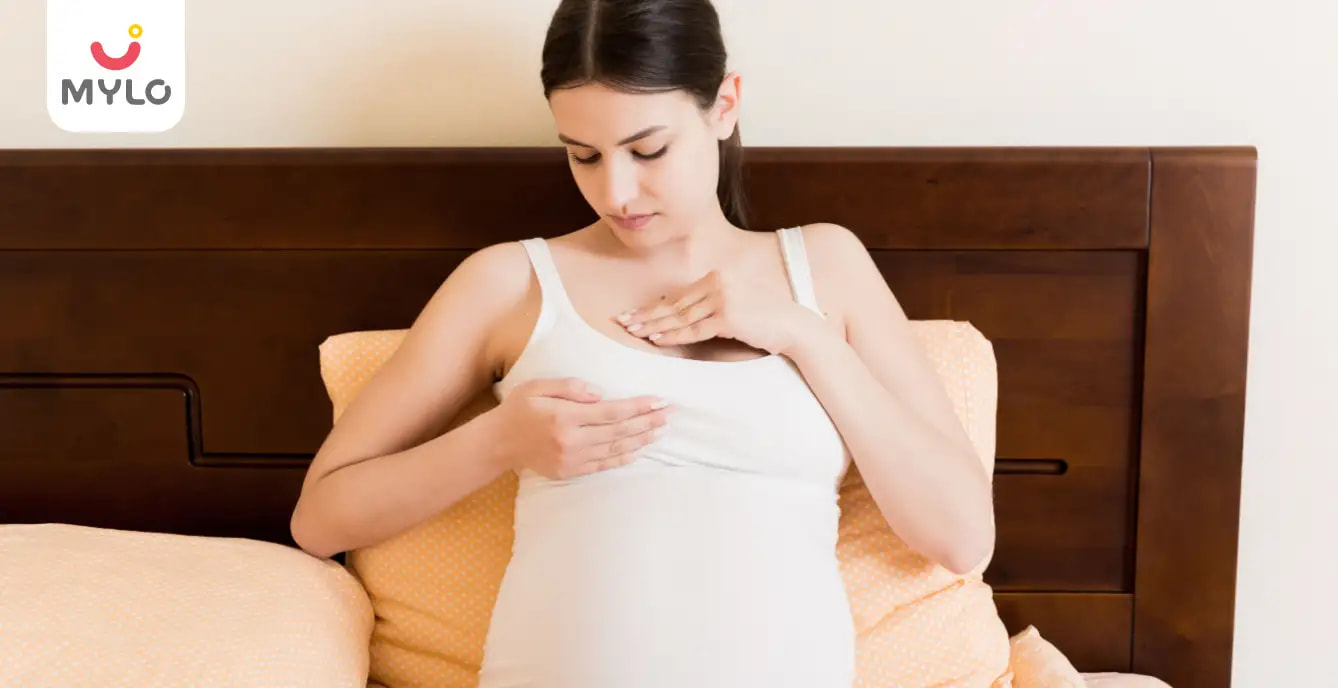
Breast Changes
Breast Pain During Pregnancy: What to Expect and How to Find Relief
Updated on 11 July 2023
Pregnancy is a transformative period characterized by profound physical and emotional changes. While some of these changes are well-known and anticipated, others may not receive the same level of recognition. One such less-discussed alteration is the occurrence of breast pain during pregnancy. This symptom often leaves expectant women contemplating whether it is a result of hormonal fluctuations or if there is a specific cause behind this bothersome sensation.
Equipping yourself with knowledge about what to expect can significantly diminish the fear of the unknown. Hence, we present a comprehensive guide to help you comprehend the reasons behind the sharp pain experienced in the breasts during pregnancy. Armed with this understanding, you can take appropriate measures to alleviate this discomfort and minimize its impact to a considerable extent.
Is Breast Pain During Pregnancy Normal?
Yes, during pregnancy breast pain is a normal occurrence. During pregnancy, the hormone levels, particularly estrogen and progesterone, increase significantly. These hormonal changes cause the breast's milk ducts and glands to enlarge and prepare for milk production. The increased blood flow to the breasts can also contribute to sensitivity and tenderness.
Wear a well-fitting and supportive bra during pregnancy to provide comfort, reduce breast movement and help alleviate breast pain.
What are the Causes of Breast Pain During Pregnancy?
Sharp pain in the breast during pregnancy third trimester or earlier can have various causes. Here are some common factors that contribute to breast pain during this period:
-
Increased blood flow
-
Breast tissue expansion
-
Fibrocystic changes
-
Emotional stress and hormonal fluctuations can influence breast pain perception.
What are the Types of Breast Pain During Pregnancy?
Breast tenderness during pregnancy can manifest in different ways. Here are some types of breast pain that pregnant women may experience:
1. Soreness and tenderness
This is the most common type of sore breast during pregnancy. The breasts may feel tender to the touch, and there may be a generalized soreness or discomfort in the entire breast area.
2. Sharp or shooting pain
Some women may experience sharp shooting pains in their breasts. These sudden, brief pains can occur sporadically and may be more noticeable when moving or touching the breasts.
3. Burning or tingling sensation
Some women describe a burning sensation in their breasts during pregnancy. This sensation can be mild or more pronounced and may occur intermittently.
4. Fullness or heaviness
As the breasts change to prepare for breastfeeding, they may feel fuller or heavier. This can lead to a sensation of pressure or discomfort in the breast tissue.
5. Breast engorgement
Breast engorgement occurs as the breasts fill with milk and can cause significant breast pain. The breasts may become swollen, tight, and extremely tender.
It's important to remember that every woman's experience of breast pain during pregnancy may vary. Some women may experience a combination of these types of pain, while others may only experience one or a few.
You may also like : Galactorrhea: Meaning, Symptoms & Causes
Breast Pain During the First Trimester
Breast pain during the first trimester of pregnancy is common for many women. It is primarily attributed to hormonal changes in the body during this early stage of pregnancy. Here are some key points about breast pain in the first trimester.
The increased circulation can contribute to breast pain and tenderness, especially during the first trimester. Some women may experience significant breast growth during the first trimester, leading to stretching of the skin and tissues. This rapid growth can contribute to breast soreness and sensitivity.
Breast Pain During the Second Trimester
As the pregnancy progresses, certain changes affect the breasts, leading to various sensations and discomfort. Around the midpoint of pregnancy, the breasts may start producing colostrum, a nutrient-rich fluid that precedes breast milk. The production of colostrum can cause the breasts to feel fuller, heavier, and potentially more sensitive.
The ligaments supporting the breasts may stretch and loosen as the breasts continue to grow. This stretching can lead to sensations of pulling or mild pain in the breast area.
You may also like: When Does Breast Milk Come In During Pregnancy?
Breast Pain During the Third Trimester
By the third trimester, the breasts have significantly increased and may continue to grow. This enlargement can lead to stretching of the breast tissue, causing sharp pain in breast during pregnancy third trimester. The breasts may feel fuller and heavier as they prepare for milk production.
Braxton Hicks contractions, mild, irregular contractions of the uterus, can also contribute to breast discomfort. The tightening sensation in the abdomen can radiate to the breasts, causing temporary pain or soreness.
How to Cope with Breast Tenderness During Pregnancy?
Coping with breast tenderness during pregnancy can help alleviate discomfort and promote overall well-being. You can use a well-fitted supportive bra, use a warm or cold compress, practice gentle breast massage, maintain good posture, avoid excessive breast stimulation, and use nursing pads.
Remember to listen to your body and prioritize self-care during pregnancy. If at any point you have concerns or questions about your breast soreness, seeking guidance from your healthcare provider is always recommended.
How to Relieve Sore Breasts During Pregnancy?
Relieving sore breasts during pregnancy can provide much-needed comfort. Here are some strategies to help alleviate soreness:
1. Wear a supportive bra
Invest in a well-fitting bra that provides proper coverage and reduces breast movement. Look for bras with wider straps and additional support around the breasts. Consider choosing a bra made of soft, breathable fabric to enhance comfort.
2. Apply warm or cold compresses
Alternating between warm and cold compresses can help relieve breast soreness. Apply a warm compress, such as a warm towel or a heating pad, for 10-15 minutes to promote blood circulation and relax the breast tissues.
Cold compresses, such as a chilled gel pack or a bag of frozen peas wrapped in a thin cloth, can help reduce swelling and numb the area, providing temporary relief.
3. Take warm showers
A warm shower can help soothe sore breasts. Allow the warm water to run over your breasts, providing gentle heat and relaxation. Avoid using hot water, as it may cause excessive skin drying.
4. Use a supportive sleep bra
Wearing a comfortable sleep bra at night can provide support and alleviate breast soreness while you sleep. Look for a soft, non-restrictive bra specifically designed for nighttime use.
5. Practice gentle breast massage
Gently massaging your breasts in a circular motion with your hands can promote blood flow and relieve soreness. Use light pressure and be mindful of your comfort level.
6. Maintain good posture
Proper posture can help reduce strain on the back and chest, including the breasts. Stand tall, align your shoulders with your hips, and avoid slouching. Good posture can alleviate pressure on the breasts and minimize discomfort.
7. Consider over-the-counter pain relief
If your healthcare provider approves, you may use over-the-counter pain relievers like acetaminophen to alleviate breast soreness.
8. Communicate with your healthcare provider
If breast soreness becomes severe, persists, or is accompanied by other concerning symptoms, consult your healthcare provider.
When to Seek Medical Help for Breast Pain During Pregnancy?
While sore breast during pregnancy is usually normal symptom, there are instances when it's important to seek medical help. Here are some situations in which you should consult with your healthcare provider:
-
Severe or persistent pain
-
Breast redness or warmth
-
Fever or flu-like symptoms
-
Breast lumps or changes
-
Don't hesitate to contact your healthcare provider if you have any concerns, worries, or questions about breast tenderness during pregnancy.
Conclusion
In conclusion, breast pain during pregnancy is common due to hormonal changes, breast enlargement, increased blood flow, and other factors. While it can be discomforting, it is usually a normal symptom many expectant mothers experience. Understanding the causes and types of breast pain during different stages of pregnancy can help alleviate concerns and provide reassurance.
References
1. Alex, A., Bhandary, E., & McGuire, K. P. (2020). Anatomy and Physiology of the Breast during Pregnancy and Lactation. Advances in Experimental Medicine and Biology, 1252, 3–7
2. Dzoic Dominkovic, M., Ivanac, G., Bojanic, K., Kralik, K., Smolic, M., Divjak, E., Smolic, R., & Brkljacic, B. (2020). Exploring Association of Breast Pain, Pregnancy, and Body Mass Index with Breast Tissue Elasticity in Healthy Women: Glandular and Fat Differences. Diagnostics, 10(6), 393



Written by
Madhavi Gupta
Dr. Madhavi Gupta is an accomplished Ayurvedic doctor specializing in Medical content writing with an experience of over 10 years.
Read MoreGet baby's diet chart, and growth tips

Related Articles
Related Questions
Hello frnds..still no pain...doctor said head fix nhi hua hai..bt vagina me pain hai aur back pain bhi... anyone having same issues??

Kon kon c chije aisi hai jo pregnancy mei gas acidity jalan karti hain... Koi btayega plz bcz mujhe aksar khane ke baad hi samagh aata hai ki is chij se gas acidity jalan ho gyi hai. Please share your knowledge

I am 13 week pregnancy. Anyone having Storione-xt tablet. It better to have morning or night ???

Hlo to be moms....i hv a query...in my 9.5 wk i feel body joint pain like in ankle, knee, wrist, shoulder, toes....pain intensity is high...i cnt sleep....what should i do pls help....cn i cosult my doc.

Influenza and boostrix injection kisiko laga hai kya 8 month pregnancy me and q lagta hai ye plz reply me

Related Topics
RECENTLY PUBLISHED ARTICLES
our most recent articles

Care for Baby
Baby Spit Up: The Ultimate Guide to Causes, Prevention, and Management
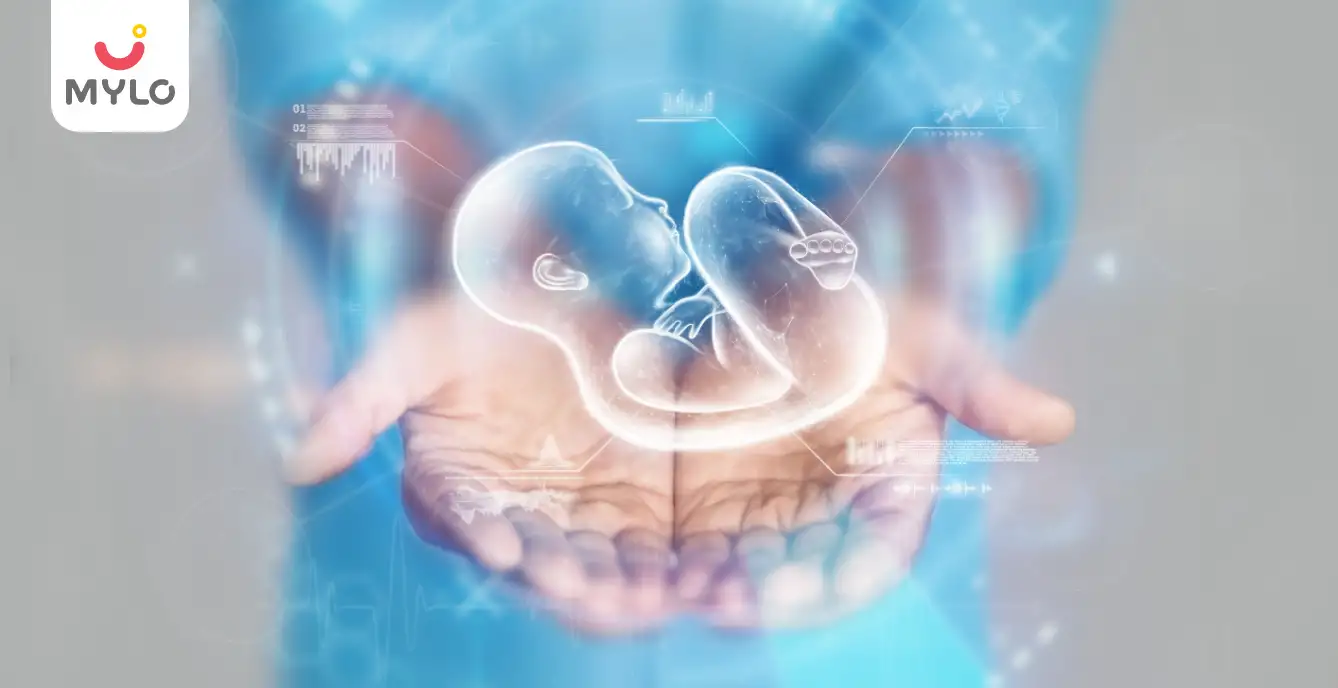
Infertility
Unexplained Infertility: Breaking Down the Factors and Finding Solutions
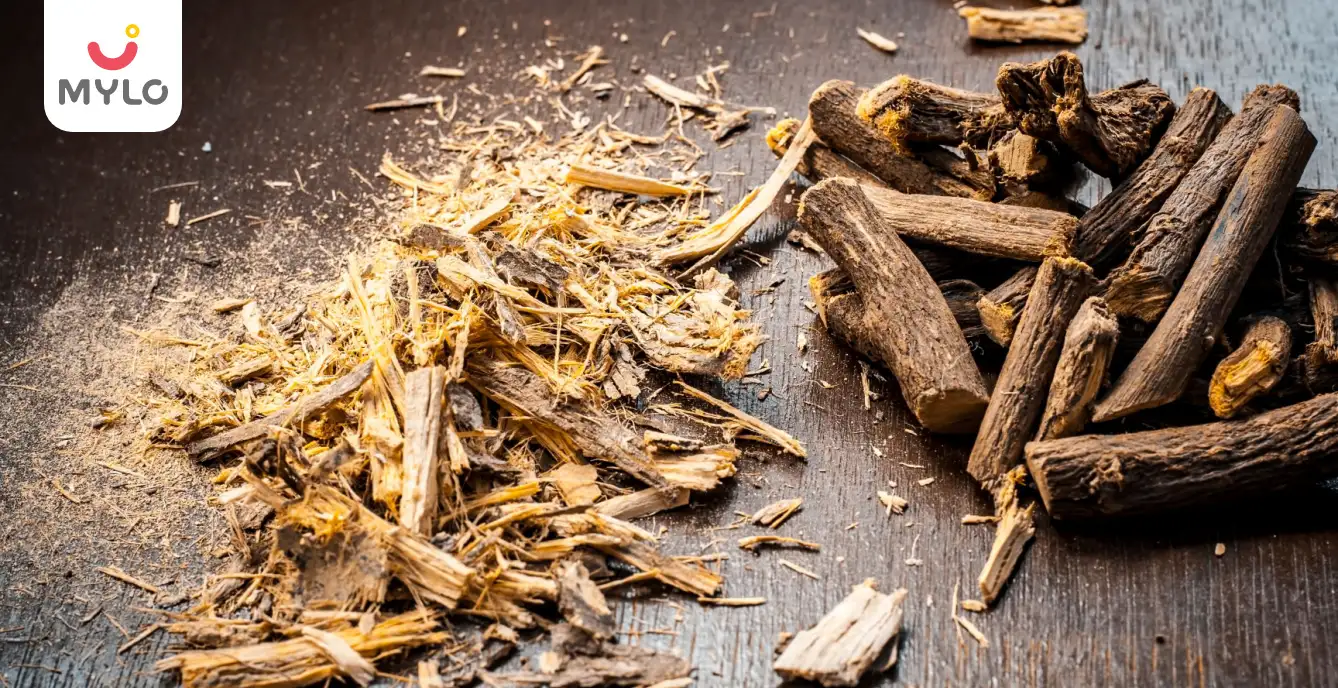
Ayurveda & Homeopathy
Mulethi: Unraveling the Therapeutic Potential of Licorice Root for Your Overall Health

Health & Wellness
5 Steps to a Healthy Lifestyle: The Blueprint for Your Wellness Journey
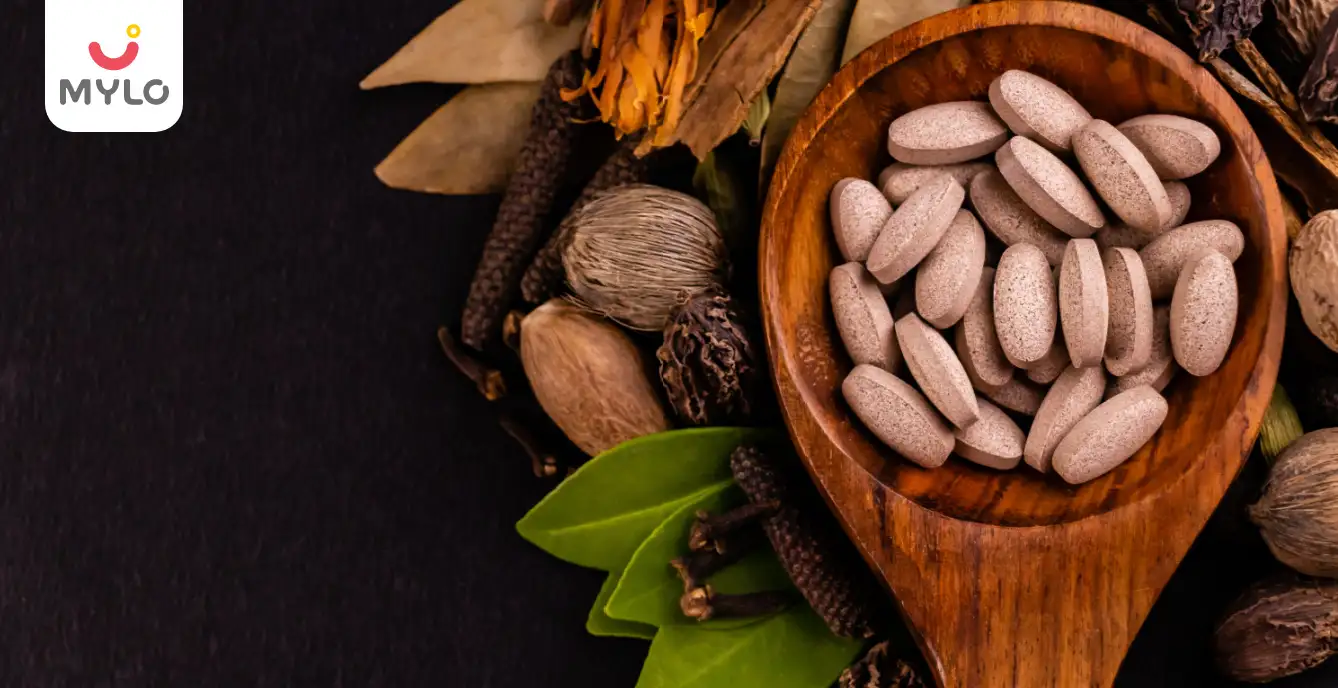
Ayurveda & Homeopathy
Chandraprabha Vati: How This Potent Ayurvedic Formulation Can Boost Your Health
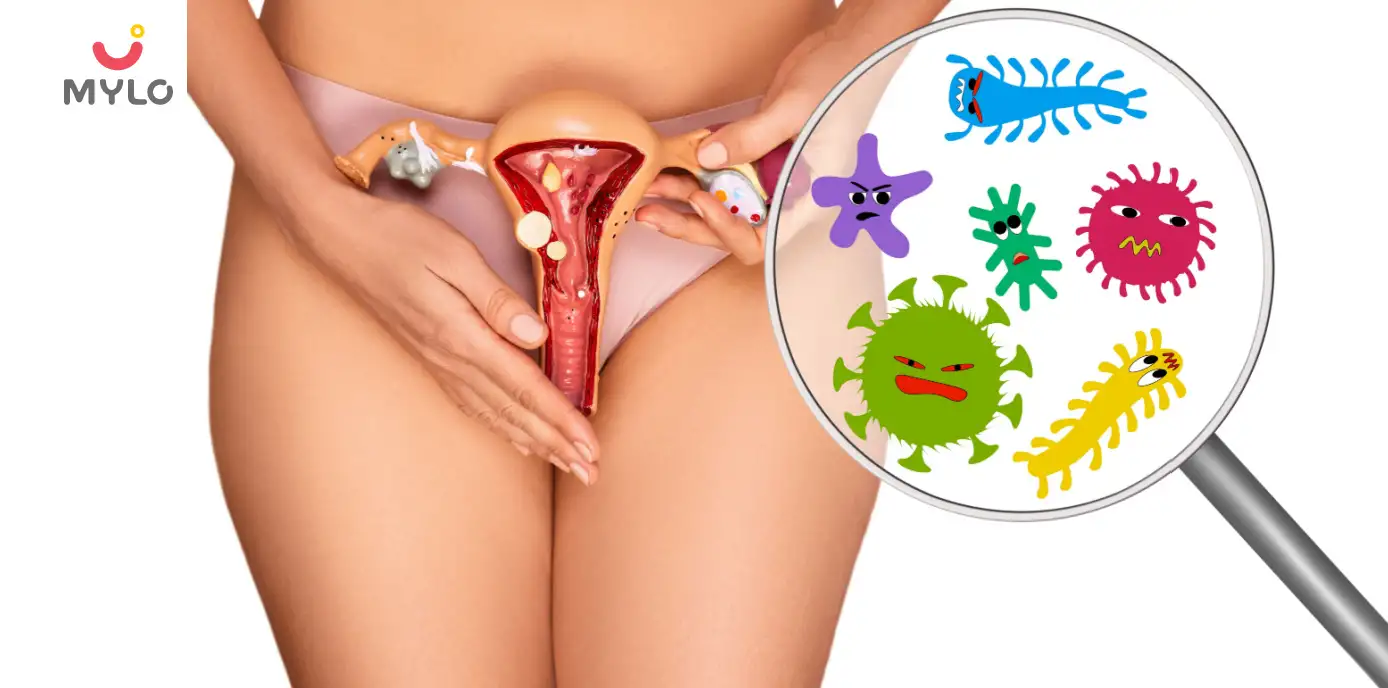
Sex Life
Trichomoniasis: Meaning, Symptoms, Causes and Risks
- Gallstones in Pregnancy: Symptoms, Complications & Treatment
- Fertility Massage: A Holistic Approach to Boosting Fertility Your Chances of Conception
- Baby Vomiting After Feeding: Understanding the Causes and Solutions for Upset Stomach
- Why do you need to wear a high waisted panty during pregnancy?
- Top 5 Precautions You Should Take After Getting an IVF Treatment
- Baby Kicking During Pregnancy: Unveiling the Wonders of Quickening in Pregnancy
- Daddy duties: Here's your guide to fatherhood
- Four-weeks old baby: Health, growth, care and more
- Baby cloth diapers by Mylo
- When to begin toilet training your child
- Are you a first time dad & scared? Here's some help
- Is your baby 3 months old now? Here's how to set-up a perfect sleep and feeding schedule for your little one?
- Painful Nipples During Breastfeeding: A Step-by-Step Approach for Managing Discomfort
- How to Manage and Alleviate Round Ligament Pain During Pregnancy?


AWARDS AND RECOGNITION

Mylo wins Forbes D2C Disruptor award

Mylo wins The Economic Times Promising Brands 2022
AS SEEN IN
















- Mylo Care: Effective and science-backed personal care and wellness solutions for a joyful you.
- Mylo Baby: Science-backed, gentle and effective personal care & hygiene range for your little one.
- Mylo Community: Trusted and empathetic community of 10mn+ parents and experts.
Product Categories
baby carrier | baby soap | baby wipes | stretch marks cream | baby cream | baby shampoo | baby massage oil | baby hair oil | stretch marks oil | baby body wash | baby powder | baby lotion | diaper rash cream | newborn diapers | teether | baby kajal | baby diapers | cloth diapers |








